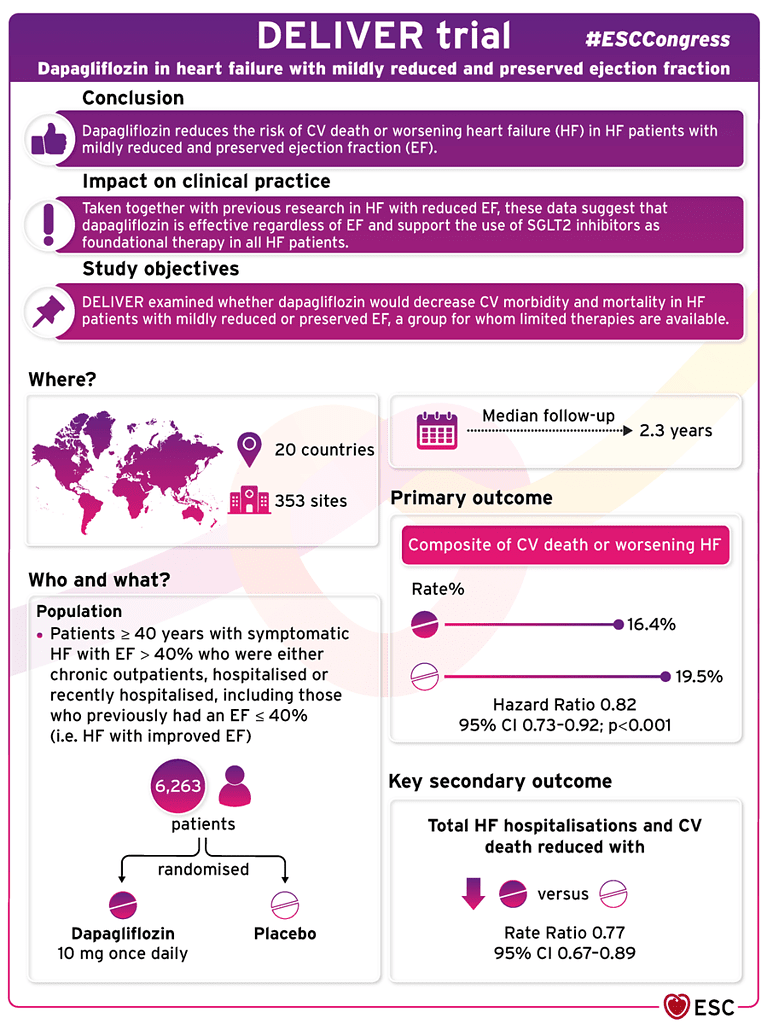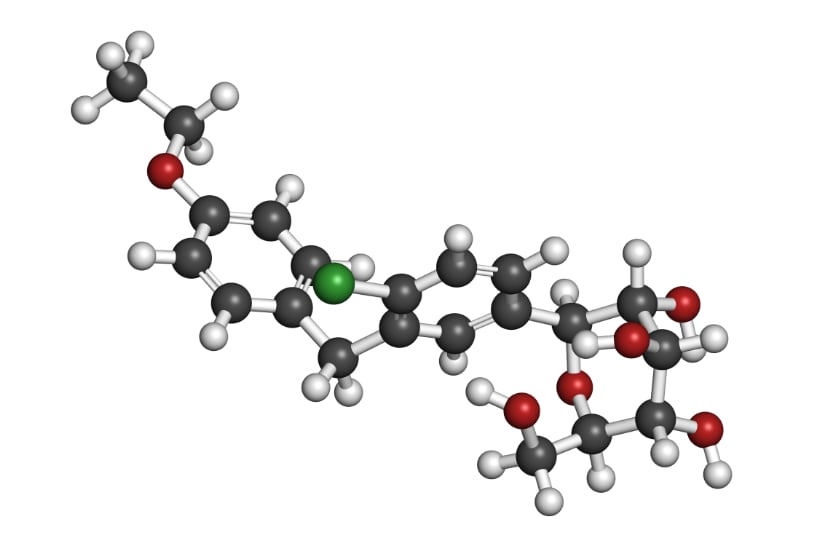By Dr. Timothy Swinn, edited by Dr. Ahmed El-Medany
Recent evidence from the DELIVER trial[1], published in the New England Journal of Medicine and presented at a Hotline session at the ESC congress this month, has shown dapagliflozin to reduce a composite outcome of cardiovascular death and decompensation in patients with heart failure with preserved (HFpEF) or mildly reduced ejection fraction (HFmrEF), compared to placebo. Whilst evidence for dapagliflozin in heart failure with reduced ejection fraction (HFrEF) is well-established[2], and empagliflozin has been shown to be beneficial in patients with preserved ejection fraction[3], the effect of dapagliflozin in patients with HFpEF remained unknown.
The DELIVER trial was a multi-centre double-blind randomised controlled trial comparing dapagliflozin (10mg once daily) to placebo, on top of each patient’s existing therapy. Key inclusion criteria were an ejection fraction (LVEF) above 40% at the time of recruitment and a raised NT-proBNP. 6,263 patients were included and were evenly split between dapagliflozin and placebo. Groups were well-matched in key characteristics, including spread of LVEF, NYHA class, and prevalence of diabetes, and both groups had an identical discontinuation rate due to adverse effects (5.8%). The primary end-point was a composite of cardiovascular death and decompensation of heart failure (resulting in hospitalisation or seeking urgent care). This composite outcome occurred in 16.4% of the dapagliflozin group and 19.5% of the placebo group (hazard ratio 0.82; 95% confidence interval 0.73-0.92; p<0.0001). The rates for cardiovascular death or worsening heart failure alone didn’t reach statistical significance as the study was underpowered for the low event rate. No difference in magnitude of benefit between patients with LVEF greater than and less than 60%, suggesting no declining benefit with increasing LVEF.
This study paves the way to including dapagliflozin in treatment guidelines for HFpEF and offers an exciting intervention to reduce risk of cardiovascular death and/or heart failure. Further research is required to establish whether this benefit extends to HFpEF patients with normal BNP.

References
- Solomon SD, McMurray JJV, Claggett B, de Boer RA, DeMets D, Hernandez AF, et al. Dapagliflozin in Heart Failure with Mildly Reduced or Preserved Ejection Fraction. N Engl J Med. 2022 Aug 27;
- McMurray JJV, Solomon SD, Inzucchi SE, Køber L, Kosiborod MN, Martinez FA, et al. Dapagliflozin in Patients with Heart Failure and Reduced Ejection Fraction. N Engl J Med. 2019 Nov 21;381(21):1995–2008.
- Anker SD, Butler J, Filippatos G, Ferreira JP, Bocchi E, Böhm M, et al. Empagliflozin in Heart Failure with a Preserved Ejection Fraction. N Engl J Med. 2021 Oct 14;385(16):1451–61.

